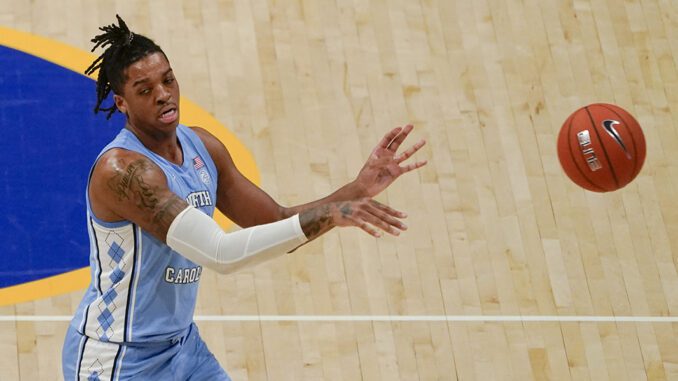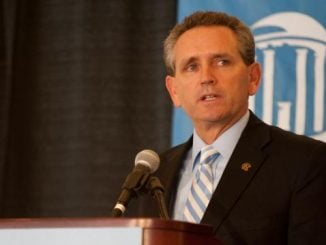
The phone at Amedeo’s didn’t start ringing at the stroke of midnight last Thursday, the moment the NCAA began granting its “student-athletes” the ability to profit from their name, image and likeness.
But it wasn’t long after the Raleigh restaurant opened the next morning for the first calls to come.
“I think that same day I got hit up by three athletes and one agent,” said Dave Parker, co-owner of the NC State-centric Italian eatery. “Since then, I’ve heard from a couple more. They’re not knocking our doors down, but I’m definitely hearing from them.”
Parker said he and his partners are still trying to figure out the details of managing the new landscape. He said that the restaurant plans to align itself with a team of seven prominent State athletes to serve as ambassadors.
“I feel like if we don’t do something, we’re going to get left behind,” he said. “And it makes total sense.”
While Amedeo’s figured to be a natural target for State athletes looking to cash in on their newfound marketability thanks to an unofficial connection to the school that dates back to the days of Jim Valvano and has its walls covered corner-to-corner with Wolfpack memorabilia, it is hardly unique.
Businesses all around the state — and all across the country, for that matter — have begun hearing from athletes now free to pursue sponsorship deals without the threat of losing their NCAA eligibility.
Many others have decided to venture out on their own by selling promotional items such as T-shirts with their names and photos on them, doing autograph signings, creating a Cameo account, doing podcasts or by monetizing their large social media followings.
Among the most notable deals struck by local athletes was one in which North Carolina basketball player Armando Bacot teamed up with the Maryland-based Jimmy’s Famous Seafood.
It’s a feeding frenzy the NCAA, coaches and administrators fought long and hard to prevent on the grounds that paying athletes would threaten the integrity of their sports. But because of a growing number of state laws pertaining to name, image and likeness (NIL) and recent antitrust warnings from federal government officials, the NCAA was forced to abandon the fight.
On July 1, it began allowing athletes to tap into their earning potential in accordance with the NIL rules put in place by their states. One day later, Gov. Roy Cooper issued an executive order setting down guidelines for those attending schools in North Carolina.
“Treating these athletes fairly and uniformly will help our state remain a competitive and desirable place to get educated and compete,” Cooper said in announcing the order, which sets “a standard for individual institutions to use as they formalize their own policies and procedures.”
The new guidelines, which are expected to be approved by the full state legislature, allow students at state schools to profit from their NIL as long as the money they earn comes from sources other than their school and does not come on the condition of enrollment.
They must also comply with state and federal laws as they pertain to the relationship of college athletes and agents.
In turn, schools can prevent their students from entering into deals that conflict with contracts already in place by the university, endorsing products or brands that are “antithetical to the values of the institution,” or using official team events or logos in their endorsements.
To help their athletes negotiate their way through the uncertain new situation, most state colleges have created initiatives and partnered with professional firms to provide them with education, monitoring, disclosure and brand-building assistance.
At East Carolina, the Student Athlete Brand Resource Education (SABRE) program has partnered the athletic department with the university’s School of Entrepreneurship to provide whatever assistance its athletes might need and turn NIL into an educational experience.
“Our administration is going to put us in the best possible position for success with the SABRE program and give us the resources to enhance our personal brand,” Pirates quarterback and Greenville native Holton Ahlers said. “As a native of this community, I understand what being a Pirate means and the passion our fans have for the Purple and Gold.
“The NIL legislation will help all student-athletes now benefit from their personal brand and prepare for the next step in their journey with an education from a group of experts in their field.”
While some, including Clemson football coach Dabo Swinney, have voiced their fear that the paying of players will spell the end of college athletics as we know it, others argue that NIL legislation is an idea long overdue.
“The sun came up on July 1 and the world remains firmly on its axis now that athletes can profit off their name, likeness and image,” ESPN analyst and former Duke basketball star Jay Bilas said in a social media post after the new rules went into effect. “It’s past time, it’s here. People need to embrace it and stop talking about the sky falling.”


